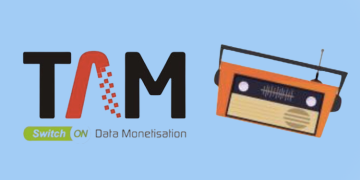Blockchain technology, initially synonymous with cryptocurrency, has rapidly evolved, permeating various industries beyond finance. One of the most transformative sectors being reshaped by blockchain is marketing. This revolutionary technology is offering unprecedented opportunities for marketers, from enhancing transparency to boosting security and efficiency. This article explores the multifaceted impact of blockchain on marketing, highlighting its potential to drive more trustworthy and effective marketing strategies.
Understanding Blockchain Technology
Before delving into its marketing applications, it’s essential to grasp what blockchain technology entails. Blockchain is a decentralised digital ledger that records transactions across many computers in such a way that the registered transactions cannot be altered retroactively. This ensures data integrity and security, making blockchain a powerful tool for various applications beyond cryptocurrencies like Bitcoin.
Enhanced Transparency and Trust
One of the most significant advantages of blockchain technology in marketing is enhanced transparency. In traditional marketing, data manipulation and fraud are prevalent concerns. Blockchain mitigates these issues by providing a transparent and immutable record of transactions.
- Transparency in Advertising: Blockchain can provide verifiable data on ad performance. Marketers can track the exact number of impressions and engagements an ad receives, ensuring that reported metrics are accurate. This reduces the chances of ad fraud and improves trust between advertisers and clients.
- Supply Chain Transparency: For brands focusing on ethical sourcing, blockchain offers a transparent supply chain. Customers can trace the journey of a product from its origin to the shelf, ensuring it meets ethical and environmental standards.
Improved Data Security and Privacy
Data security and privacy are critical concerns in the digital age. With increasing regulations like GDPR, blockchain offers a solution to ensure data is securely stored and shared.
- Secure Data Sharing: Blockchain allows secure sharing of customer data between companies with customer consent. This ensures that personal data is not tampered with or misused, fostering consumer trust.
- Personalised Marketing: With secure and transparent data handling, companies can offer more personalised marketing while respecting user privacy. Blockchain enables users to control who can access their data and how it can be used, leading to more tailored and effective marketing campaigns.
Efficient and Cost Effective Transactions
Blockchain technology can streamline various marketing processes, making them more efficient and cost effective.
- Smart Contracts: Smart contracts are self executing contracts with the terms of the agreement directly written into code. In marketing, they can automate and enforce agreements between parties, reducing the need for intermediaries and lowering transaction costs.
- Token Based Incentives: Blockchain can facilitate token based loyalty programs, where customers earn tokens for engaging with a brand. These tokens can be easily tracked and redeemed, making loyalty programs more efficient and engaging.
Case Studies and Real World Applications
Several companies are already leveraging blockchain technology to revolutionise their marketing efforts.
- Unilever: Unilever has been using blockchain to track its advertising spend. By doing so, they ensure that their ads reach real human viewers, reducing ad fraud and ensuring better ROI.
- IBM Food Trust: Although not purely a marketing application, IBM Food Trust uses blockchain to provide transparency in the food supply chain. This has marketing implications, as brands can use this transparency to build trust with consumers concerned about food safety and sourcing.
- Loyalty Programs: Companies like American Express are experimenting with blockchain based loyalty programs to provide a seamless and secure experience for their customers. This not only enhances customer engagement but also builds trust and loyalty.
Challenges and Future Prospects
While blockchain holds immense potential, its adoption in marketing is not without challenges.
- Scalability: Current blockchain systems face scalability issues, which can be a hurdle for widespread adoption in marketing.
- Regulatory Uncertainty: The regulatory environment for blockchain technology is still evolving. Marketers need to stay informed about legal implications and ensure compliance with local and international regulations.
- Integration with Existing Systems: Integrating blockchain with existing marketing systems can be complex and require significant investment in terms of time and resources.
Despite these challenges, the future of blockchain in marketing looks promising. As technology matures, it is expected to become more scalable and userfriendly, making it easier for marketers to harness its full potential.
Conclusion
Blockchain technology is much more than the backbone of cryptocurrency; it is a gamechanger for the marketing industry. From enhancing transparency and trust to improving data security and transaction efficiency, blockchain offers numerous benefits that can transform how marketers engage with their audiences. While there are challenges to overcome, the potential rewards make it a technology worth exploring. As blockchain continues to evolve, its impact on marketing will undoubtedly grow, paving the way for more trustworthy, efficient, and effective marketing practices.
Authored by Shiva Bhavani- Founder and CEO of Wing Communications

















